© Edm
My mother used to refer to people who took offence too easily as “shrinking violets”. I have also come across the same expression being used to describe exceptionally shy people. In the case of China and its government, I don’t think anyone could seriously describe them as being unusually shy, but they certainly respond quickly and with rather harsh measures towards anyone who dares to voice any criticism, or even the hint of criticism. Like Caesar’s wife, they must be above suspicion. At least, that’s what Caesar himself is supposed to have said (according to Plutarch) to justify his divorce from his wife, Pompeia, whom he suspected had possibly (only possibly) encouraged the lustful intentions of another man, Publius Clodius Pulcher. He had certainly had his eyes on Pompeia and was subsequently arrested. Caesar also divorced his wife, just to be on the safe side, saying that his wife must be above suspicion. In other words, even the suggestion of wrongdoing, let alone any actual misbehaviour, is not to be tolerated. Unsubstantiated allegations would be enough. Sensitive lot, those Romans. In Caesar’s case, it didn’t do him a lot of good in the long term, since he fell victim to a conspiracy by his supposed “friends” that ended both his rule and, indeed, his life. Shakespeare’s unequalled play about Caesar’s assassination shows his friend Brutus as having been the only honest conspirator, doing what he did reluctantly and for the sake of Rome; no empty, untrue charges of misconduct there. In modern-day China’s case, that suspicion seems harder to justify.
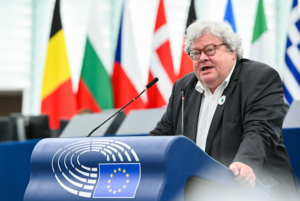
China decided to take action against three members of the European Parliament and two others in tit-for-tat retaliation after the EU sanctioned four Chinese officials for human rights abuses . That was back in 2021 and Beijing was swift in its response, singling out Reinhard Bütikofer, Miriam Lexmann, and Ilhan Kyuchyuk for the inevitable retaliatory sanctions. The EU had accused the four Chinese officials of human rights abuses against the Uyghur people, while Beijing accused those it targeted for its vengeance of actions that could: “severely harm China’s sovereignty and interests and maliciously spread lies and disinformation”. The three Europeans are barred from entering Chinese territory and face restrictions if they try to conduct business there.
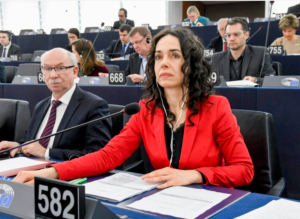
Let’s take a look at them; there are others as the numbers continue to rise in response to Beijing’s paranoia. Reinhard Bütikofer represents Alliance 90/The Greens in the European Parliament, which is part of the Confederal Group of the European United Left – Nordic Green Left (GUE/NGL) and he was first elected to the European Parliament in 2009. Miriam Lexmann is from Slovakia and represents the Christian Democrats, sitting with the European People’s Party group (EPP), as does German EPP member Michael Gahler, who sits in the Interparliamentary Alliance on China. Ilhan Kyuchyuk, from Bulgaria’s Turkish minority, sits with the Renew Group, formerly known as the Alliance of Liberals and Democrats for Europe. Like me, he was horrified by Britain’s decision to leave the EU, especially as the vote to do that was won by a tiny majority and many people in Britain then and now have criticised and condemned it.
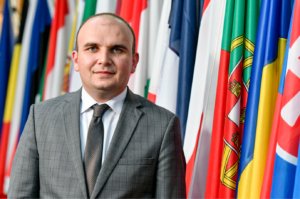
Of course, scepticism about politicians and their state beliefs is only natural. After all, as Britain’s Second World War leader Winston Churchill famously said: “A lie gets half way around the world before the truth has a chance to get its pants on.” Having spent a lifetime reporting on politics, I remain amazed that anyone believes politicians are ever telling truth. As another political commentator once said: “One of the reasons people hate politics is that truth is rarely a politician’s objective. Election and power are.” That quotation came from Cal Thomas, a journalist, writer and political commentator, mainly during the 1970s, who worked for NBC and Fox News, among others. Incidentally, he was vociferously opposed to Islamic immigration, so he would have found common cause in some respects with Beijing and with Jerusalem. He was also rather right wing in many of his views, as well as being anti-Islamic. But he was right on the money with his opinion of most politicians’ overall aims and motivations. China imposed the sanctions because it wanted to punish people for believing in democracy, but the affair really serves to demonstrate how little Beijing understands how real politics works. Rather than disadvantaging the sanctioned people, it has drawn public attention to the affair and to what they had said to merit Beijing’s annoyance.
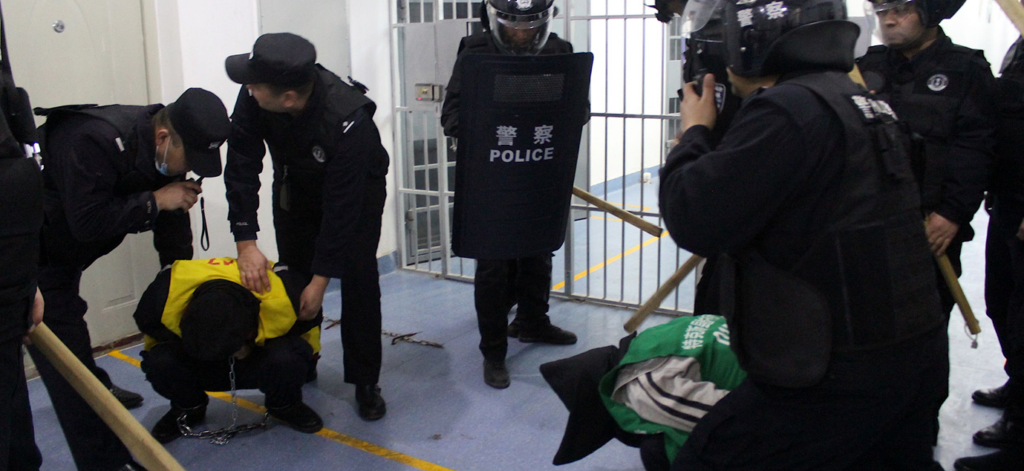
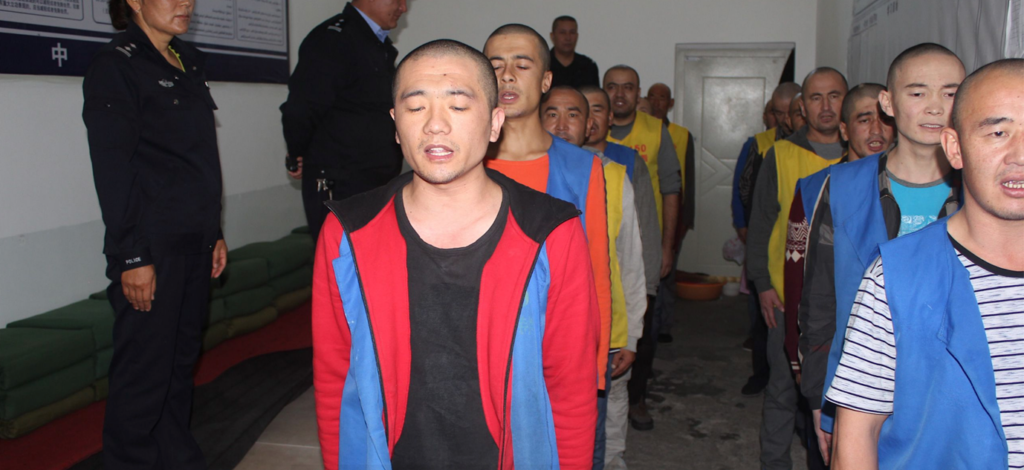
| DON’T DO IT AGAIN (OR WE’LL MAKE YOU FAMOUS AND POPULAR!)
The EU has, of course, hit back. Four Chinese party and regional representatives, as well as an organisation from Xinjiang province against the Uyghurs, will be subject to an EU asset freeze, a travel ban, and also a ban on receiving EU funds under any circumstances. It’s in connection with alleged large-scale detentions of Uyghurs as well as other abuses for which Chinese officials stand accused. It’s not the first time, of course , and China seems convinced that it sheer size and military power mean it does not have to abide by any of the norms that bind most countries in their international relations. What they have never realised is that their punitive actions have the opposite effect to what they actually want, turning what they find to be slightly annoying writers of articles into national heroes. Clearly, the Chinese don’t understand that.
We have to ask ourselves what exactly upset the MEPs so much that they spoke out in a way that so offended Beijing. The Uyghurs – an estimated 11.8 million of them – live in the extreme northwest of China, a long way from Beijing, and China has long been accused of human rights abuses against them, although the acts have not only been against Uyghurs; China is accused of systematic abuses against all its minorities. At a school provided for Uyghur children in Turpan there is a notice on the gate forbidding the use of their native tongue. They must use Mandarin Chinese, referred to on the notice as Guoyu, although in a nod to civility, it does say “please”. Teachers who have fled China after being forced to teach in camps, using only “standard Chinese” – essentially Mandarin – as used by the Han people, so the children effectively get a monolingual education. As for the camps themselves, they have been described as “cramped and unhygienic, with students getting little more than just enough food to keep them alive, whilst sitting through “indoctrination” classes, with the aim of turning them into fully-fledged Chinese citizens. China has put the various Mosques effectively out of use by severely damaging them. The Uyghur are Islamic in their faith but the Chinese do not approve. United Nations research into the treatment by China of the Uyghurs has concluded that this has included arbitrary detention, forced labour, the suppression of religious practices, political indoctrination, forced sterilization and contraception, as well as forced abortion.
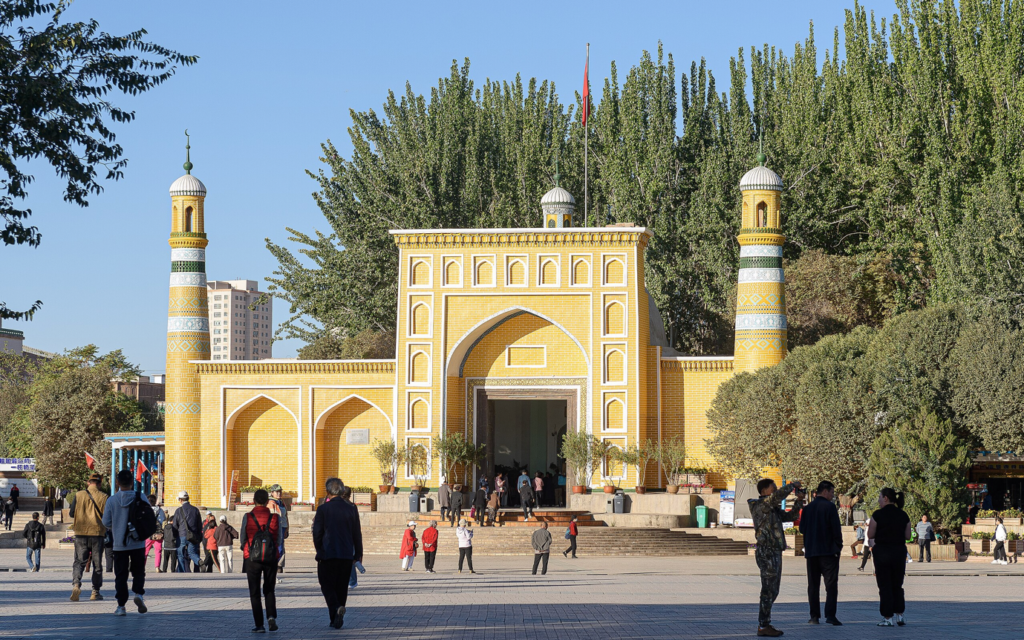
A case brought by the International Criminal Court, however, was dismissed on the grounds that the alleged crimes were committed solely against “Chinese nationals” (something the Uyghurs might dispute) and on the territory of China. China is not a signatory to the statute on human rights, so can, presumably, do what it likes to people it considers – whether they like it or not – to be Chinese citizens. What’s more, the between 2015 and 2018, the birth rate in the mainly Uyghur regions of Hotan and Kashgar fell by more than 60%, while the birth rate across China as a whole only fell by less than 10%. In 2019, the birth rate in Xianjiang fell by an additional 24%. The United Nations has referred to China’s actions in the province as “crimes against humanity” but has not gone as far as to call it genocide. Any country behaving that way, however, must have been acting inhumanely and with great cruelty.
| ETHNICITY MATTERS, IT SEEMS
Perhaps the Chinese feel free to act in this way because ethnically the Uyghurs are Turkic and not closely related to the Han majority in China, although they’re the second largest ethnic group living there. Some ten million people living in China view Uyghur as their native language, despite China’s apparent attempts to stamp it out. The Uyghurs lay claim to their original home area, Xinjiang, but so does China’s Han government. China rejects criticism from anywhere else concerning its treatment of the Uyghurs. “Xinjiang-related issues are purely China’s internal affairs, and no external force has the right to interfere,” a government spokesperson said. Of course, under that sort of logic any country could simply exterminate sections of its population and dismiss criticism as “interference in its domestic affairs”. I understand that Adolf Hitler did so when criticised for seeking to exterminate Jews. China is wrong there: gross violations of rights can be criticised, although Beijing leans heavily on those countries that do so, dismissing mentions of particular acts of discrimination or cruelty as “lies and disinformation”.
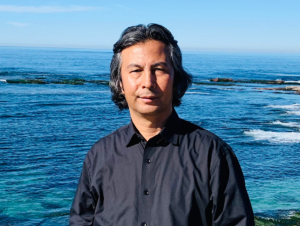
In his disturbing but beautiful poem “The Past”, translated by Joshua L. Freeman, Uyghur poet Tahir Hamut Izgil, summed up present-day Uyghur existence like this:
“When children asked, When will we be grown up
Their mothers said, When the sun shines on a Thursday
When youths asked, When will we be happy
Their elders said, when a camel tail touches the earth
The sun never shone on a Thursday, a camel tail never touched the earth.”
I include that poem in this article, despite the fact that its inclusion may upset Xi Jinping. China claims it has established what it calls “hard-won social stability” across Xinjiang, but that, of course, is a lie. What it means is that it has effectively silenced critics. For instance, in 2023 the Chinese authorities imposed a life sentence on Rahile Dawut, an internationally recognised Uyghur ethnographer, accusing her of “endangering state security”, which would be a clever thing to achieve through science writing. Another Uyghur academic, Ilham Tohti, an economist, is also serving a life sentence for his intellectual output. It’s thought that some 500 Uyghur intellectuals are now behind bars. That will leave only the less well educated people who are still outside of China’s prisons to run the country. With the Uyghur community, Chinese government actions are verging on the ridiculous. Take the case of the film maker Ikram Nurmehmet, who was arrested at his home in May and taken to Xinjiang’s capital, Ürümqi, where he has since been held on pre-trial detention without being told what he’s accused of. The Chinese government, never a fan of trial by jury, seems to have abandoned even the pretence of fairness. Although he was born and raised in Ürümqi, he actually lives in Beijing with his wife and young child, or did prior to his arrest. China is certainly no safe place for people working in the creative industries. The concepts of justice and fair play were abandoned there long ago.

Take the case of the Falun Gong, a discipline involving slow exercises and meditation, with more than a nod towards Buddhism. Many of its disciples or adherents have been arrested by the fiercely atheistic state with a view to “correcting” their beliefs through forced labour and (it’s alleged) torture. Growing in popularity through the 1990s, it was proscribed in 1999, when Beijing swore to “eradicate” it. In 2006 claims emerged that thousands of Falun Gong practitioners in Chinese prisons had been killed so that their organs could be harvested for transplant surgery. The Falun Gong’s main beliefs are based on “truthfulness, compassion, forbearance”, none of which are easy to find in Xi’s China. In fact, the Falun Gong are being persecuted for having any beliefs at all, however innocent and admirable. Oddly, of course, the founder of modern China, Mao Tse-tung had survived terrible hardships during the famous Long March, when Mao and his people were forced to kill their horses and pack animals for food, although over dinner he told the British journalist and writer Robert Payne that his most enduring memory was “the cold, the terrible cold”. He was asked by one guest what he believed to be the most extraordinary thing he’d seen along the way. “Some fish in a river near Tibet,” he told Payne and the other diners. “We waded out, and the fish came streaming toward us. They were not afraid, because there had never been any fishermen in the river.” That same lack of fear through a lack of experience no longer works with China’s human population, however. Perhaps Xi wishes it did. But the Falun Gong practitioners are, in the main, ethnically Han Chinese; the Uyghurs are clearly not. It would appear that Xi and his ministers would prefer a homogenised population, which nature on its own seems unable to provide whereas abject cruelty can, at least partially.
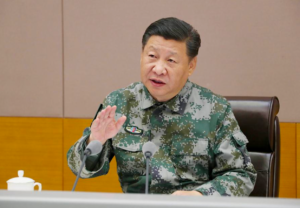
Meanwhile, just to keep their hands in practice, China’s revamped military force, the People’s Liberation Army (PLA), which is also the world’s largest force, has warned that it’s prepared to go into Taiwan with all guns blazing. That would seem to suggest the opposite meaning to that of its name. It’s not there to “liberate” the people but to threaten and enslave them into doing whatever its leaders want. Perhaps it should be renamed the PSA – the People’s Subjugation Army. It’s also rather doubtful that it can justly be called “the People’s” either, when it is very clearly under the control of the largely anonymous politicians and apparatchiks who run the place. Poor old Mao would have hated it.
| DON’T FOLLOW THE LEADER
Michael Burleigh summed it up very well in an on-line article for the UK’s “i” newspaper: “American and British hawks are giving themselves the vapours about yet another ‘axis of evil’ active in our world. This one is said to consist of Russia, Iran, China and North Korea, notwithstanding obvious differences between, respectively, a rogue imperial state, a revolutionary Shiite theocracy, a vast Asian economy ruled by Communist tycoons, and an East Asian curiosity under the weird Kim dynasty.” China’s principal hate-figure in the EU is Bütikofer, chair of the European Parliament’s delegation for relations with China. Wang Yiwei, director of the Centre for European Studies at Renmin University of China, with whom Bütikofer shared many public debates, said in an interview with the Global Times that Bütikofer has turned into an anti-China “vanguard” and “China should have sanctioned him long time ago.” In China’s view, Bütikofer is also one of those overseas politicians behind the riots in Hong Kong who actively interferes in its affairs. He supported the illegal “Occupy Central” movement in 2014. In September 2019, Bütikofer visited Hong Kong to meet leading anti-China and separatist activists such as Martin Lee Chu-ming and Joshua Wong Chi-fung, according to media reports and he has pledged his support for Taiwan’s wish to join the World Trade Organisation (WTO). Beijing views that as interfering in China’s internal affairs. It also takes a dim view of his support for Taiwan’s independence ambitions.
In 2018, Bütikofer wrote a letter to China’s Ambassador to the EU, Zhang Ming, about China’s opposition to Czech Senate President Milos Vystrcil’s planned trip to Taiwan. Zhang said in a written reply that Taiwan is an inalienable part of the Chinese territory and that matters happening inTaiwan are China’s internal affairs. In other words, keep your nose out.
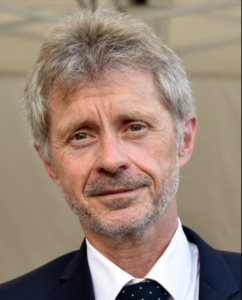
China carefully maintains friendly relations with both Iran and Russia but seems unwilling to invest in either, in any meaningful way. On the issue of Gaza and the ongoing war between Hamas and Israel, China has said it favours a 2-state solution, although it does nothing to assist in achieving that. It has condemned Israel’s bombing of civilians, although not the Hamas attack that has led to the recent increase in violence. China is on record as saying that “its business is business”, and it certainly wants to protect its oil imports from Saudi Arabia and Iran, not to mention the trade it conducts with Arab states, believed to be worth $430-billion (€408-billion). It’s also important for China’s “Belt and Road” initiative. However, there is evidence of a clear attempt by China to destroy its Uyghur community.
The methods reported include deliberately harming those held in detention, the prevention of Uyghur births by such measures as sterilisation and abortion and even the forced transportation of Uyghur children to other parts of China. A legal opinion published in the UK said that: “On the basis of the evidence we have seen, this Opinion concludes that there is a very credible case that acts carried out by the Chinese government against the Uyghur people in Xinjiang Uyghur Autonomous Region amount to crimes against humanity and the crime of genocide.” China, of course, denies any wrongdoing, whilst also arguing that its an internal matter for China and therefore nobody else’s business. More than a million people are being held in China’s various detention camps, with the claimed purpose of “re-education”, which presumably means indoctrination, although the Chinese authorities prefer to call it “transformation through education”. The few Uighurs who have got away have claimed that female detainees are systematically raped night after night to ensure they produce Han (or at least partially Han) children. One witness said that Chinese men would queue up each evening and select the women who most appealed to them. Some of the men were policemen. The concerns of Bütikofer and others are very real. But if, in the fullness of timer, there are no truly ethnically Uyghurs left, people like Bütikofer will have no further cause for complaint, will they?
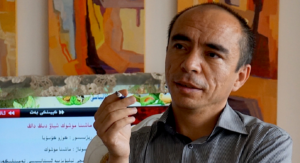
Former US President Donald Trump once assured Xi that the education camps were “exactly the right thing to do.” Why? Because a trade deal was under negotiation, and that took precedence over human rights in Trump’s view, it seems. Whatever religion people may espouse, the main object of worship would seem to come with dollar signs. But the Uyghur people continue to produce poets, even in exile or prison. The final verse of the poem “No Road Back Home”, by Purhat Tursen, translated by Joshua L. Freeman, sums up the Uighur condition and is widely quoted even today in Uighur society:
Like the waters of the Tarim
we began in this place
and we will finish here
We came from nowhere else
and we will not leave for anywhere
If God made humanity
God made us for this place
If man evolved from apes
we evolved from the apes of this place.
At the end of the day, we can remain confident that the Uyghurs will still be Uyghurs when China’s current politicians are long forgotten. Whatever Xi Jinping may say or wish, they will never become Han Chinese, certainly not at heart.

